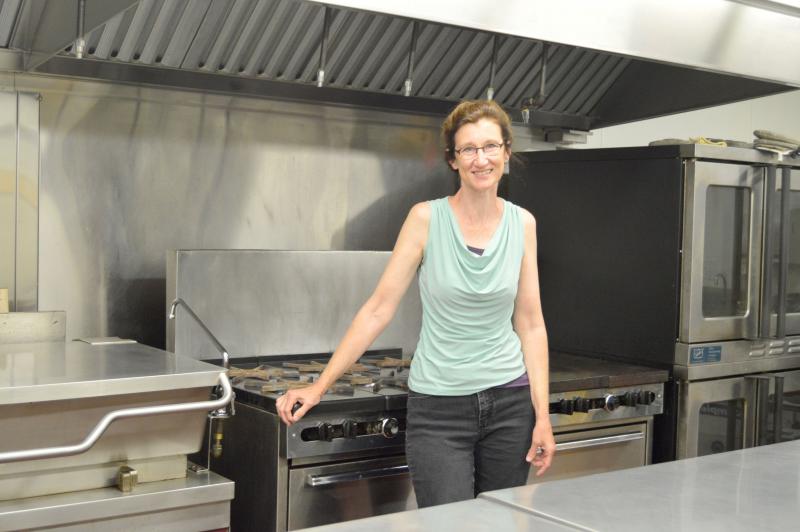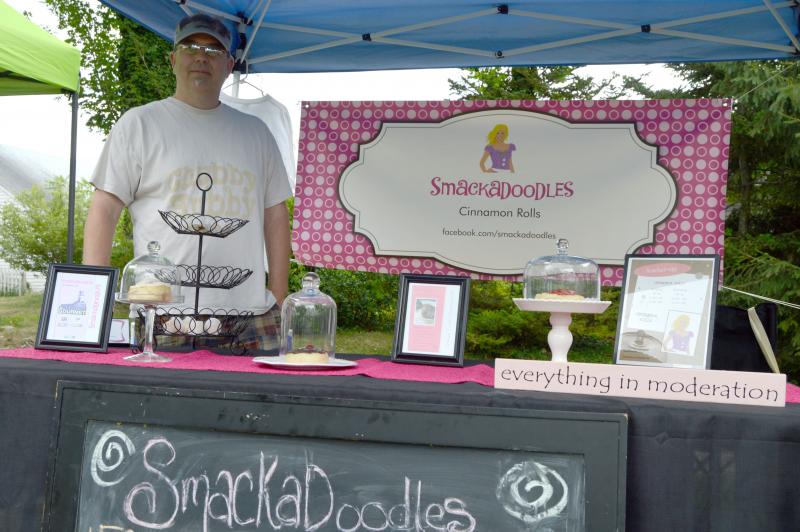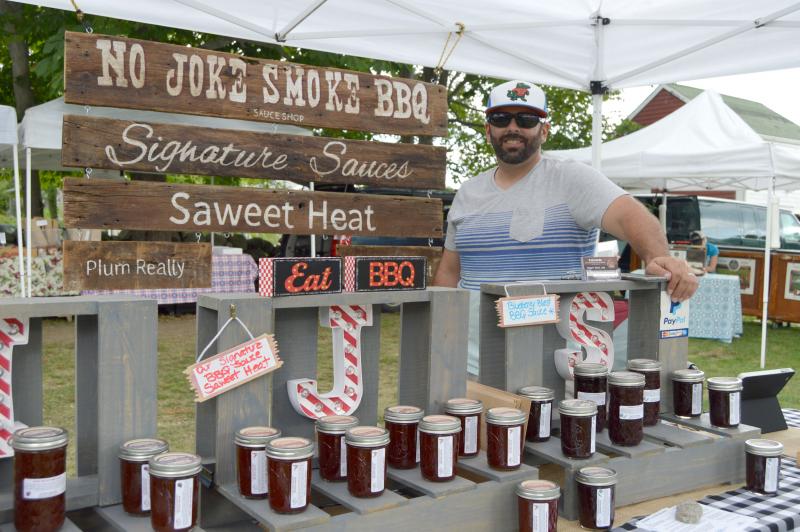Shared-use kitchen gives startups a leg up
It all started about 15 years ago when a tree landed on the Grange’s kitchen.
“The old kitchen that was here was in pretty rough shape,” said Sam Manley, president of the Dartmouth Grange. “The back had rotted off of it. But then a tree fell and put a hole in the roof, and it exposed how bad things were.”
At first, Grange members thought of just patching the roof, but during a public meeting in 2002, an ambitious goal was presented to the public that would transform the space into a shared-use kitchen open to the community.
After extensive fundraising and grant writing, the kitchen opened in 2007. It came together with the help of students from the Greater New Bedford Regional Vocational-Technical High School.
“It was about a four-year build. Over the course of the four years, about 400 vocational students had worked here in different disciplines — carpentry, electrical work, plumbing, heating, drafting,” said Manley.
Today the kitchen is about 2,000-square-feet, including storage space on the second floor. A row of heavy-duty, stainless steel cooking equipment lines the far wall. For a small startup company, this equipment is one less investment needed to launch a food business and could increase the odds of that business succeeding.
“The other advantage we have, as opposed to other shared kitchens, is that the other kitchens usually require minimum monthly fees. We don’t do that,” said Beth Adoette, the kitchen’s manager.
“Other kitchens cater to more established businesses or those with a larger volume. We have people that are doing larger volume, but we also cater to the startups.”
Adoette used to run a small food company herself. She created and operated Mad Hectic Oatmeal, a high-end oatmeal brand loaded with protein and Omega-3 fatty acids, before selling it to a Texas company. When people arrive at the Grange with their own business ideas, she can use her experience to guide them.
She said some become lost figuring out what permits they need to have in order to sell a product or figuring out what a realistic outcome might be for a startup. Her advice? A great, unique product will sell, but it’s best to begin by listening to consumers.
“I think doing farmers markets, where you’re actually interacting with a customer, is a great thing when you’re starting out or even when you’re getting bigger because you’re going to get so much valuable input. If you’re shipping things out, you don’t know what they’re thinking,” said Adoette. “See the reaction from people, and it could start to fly.”
At the Padanaram Farmers Market, held Friday afternoons at Rex Field, there are a couple of Grange kitchen users doing just that.
When Mike West and his wife, Melody, wanted to open their own sweet and savory cinnamon bun company, they knew it wasn’t going to happen in their hometown.
“We live in Taunton, so we live in a community that does not allow any residential cooking. For us, we had to be in a licensed kitchen. There were limited options,” said West, co-owner of Smackadoodles.
He and his wife liked that the Grange didn’t require a monthly minimum fee, which would have prevented the business from taking flight.
“When we first got started, we started at one farmers market, and we weren’t going to do the volume required for some of them. Basically, anything I sold, I would have to pay back in fees,” he said.
Two years later, he’s looking toward opening a cafe.
Ryan Nahas and his wife, Sharon, launched their barbecue sauce company, No Joke Smoke BBQ, this past January. They became connected to the Grange kitchen after they began making sauce with fresh produce from Silverbrook Farm.
“We were part of a CSA, and I was taking their produce and making sauces with it. Silverbook said to me, ‘If we had a kitchen here, I would bring you in and we would sell it. But we’re not certified, and there’s a kitchen around the corner at the Grange,’” said Nahas.
He uses the kitchen space about two days a week, preparing upward of 100 jars of sauce per batch. Nahas said he couldn’t be happier with the arrangement.
Manley said that, since opening in 2007, the kitchen has hosted close to a hundred users, no more than 20 at one time. That people come and go relatively quickly is part of the point.
“A lot of our producers come here and outgrow us, and that’s what we’re here for,” said Manley. “It gives them an opportunity to see if they have a product that will make it in a market — and expand it.”















